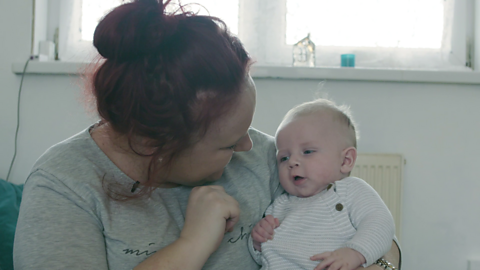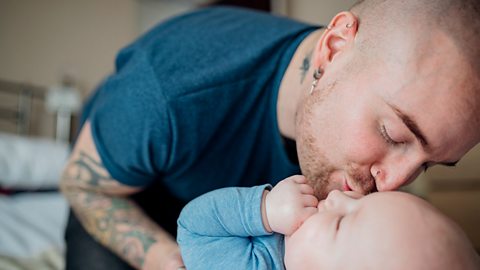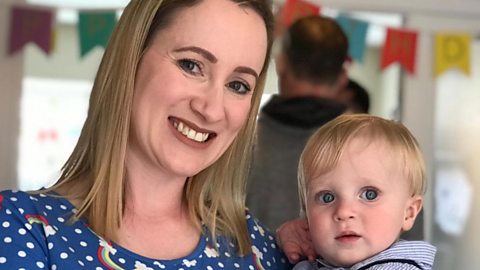Baby Loss Awareness Week is an annual event where charities come together to raise awareness about pregnancy and baby loss in the UK. We spoke to Emma about losing a child and parenting after such a life-altering event as well as getting some advice on coping with baby loss from Child Bereavement UK.
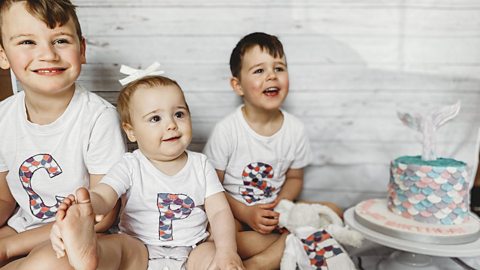
When we found out at 21 weeks that we were having a girl, we were thrilled. I know you shouldnŌĆÖt have preferences, but I wanted a girl. My partner Lee and I have a son together and we both have sons from previous relationships, and I wanted to experience the special bond mums and daughters have.
It was a hard pregnancy. I developed and because it was uncontrolled, Felicity was delivered by C-section at 34 weeks in March 2017. She stayed in neonatal care as she was quite poorly and I then developed , which meant I was readmitted to hospital. It was an incredibly scary time and it felt like we couldnŌĆÖt bond properly. But when I was well enough, I spent as much time with her as I could in hospital, changing her nappy, helping with feeding and cuddling when we could.
When we finally brought her home after 11 days, it was such a special feeling. She was tiny ŌĆō she weighed 5lb 1oz when she was born ŌĆō but was the boss of the house. If she cried, everyone came running. Everyone wanted to do things for her. I felt so proud of her when we went out together.
She was doing really, really well. But at 8 weeks old, we noticed something wasnŌĆÖt right. She wasnŌĆÖt waking up properly, she wasnŌĆÖt feeding properly. She also had a temperature. We took her to the hospital but we were told she was fine and if she was any worse the following day, to bring her back in. When we woke up on early the next morning, she wasnŌĆÖt breathing.
Felicity most likely died from sepsis, caused by pneumonia.
I canŌĆÖt describe the pain. I went into shock. I was unresponsive to people. I didnŌĆÖt talk, I didnŌĆÖt move, I didnŌĆÖt eat. The pain inside was so intense. Everything reminded me of her, including my body. My breasts were still producing milk and were very painful. I was angry and blamed myself ŌĆō weŌĆÖd taken Felicity to hospital the day before she died and I wish IŌĆÖd demanded more. My partner Lee dealt with it differently. He was on autopilot. He said that he felt like he had to be strong and he buried his feelings deep down.
Having the boys was a comfort but it took a very, very long time to feel any sense of normal. I had help from a crisis mental health team when I was at rock bottom and dealing with suicidal thoughts. But it really didnŌĆÖt feel like it was helping at the time. I didnŌĆÖt want to go over the day of FelicityŌĆÖs death constantly. The only thing that gave us comfort was looking ahead.
Emma and Lee decided to try for another baby and went through an ectopic pregnancy and miscarriage before their daughter PennyŌĆÖs birth in 2018.
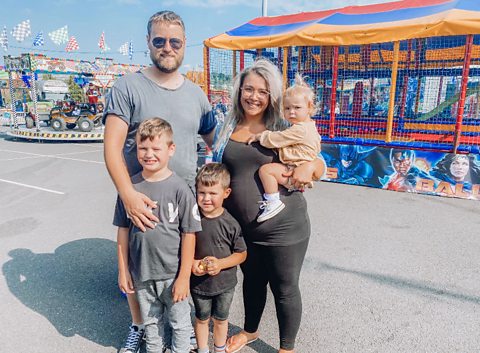
When I was pregnant with Penny, I was incredibly anxious. I was on the CONI (Care of Next Infant) project with , so I contacted them for support and they put me in touch with a befriender. SheŌĆÖd also lost a baby but was further on than me in her journey and had grown-up children in their 20s. She was amazing. Speaking to her, knowing that sheŌĆÖd got through it and survived, filled me with hope that maybe I could too.
I was also given a bereavement midwife. She made a massive difference with her warmth and constant support. She sat with me through scans and visits to see my consultant, which helped keep my mind off all my worries and anxieties. She befriended the whole family ŌĆō she wasnŌĆÖt just there for me; she was there for us all.

Emma wants people to have open conversations about death and encourages grieving parents to build a support network.
ItŌĆÖs really important to open up to someone about your grief. It doesnŌĆÖt have to be with another mum whoŌĆÖs lost a child. It just needs to be someone you feel comfortable with. Someone who will say: ŌĆśIŌĆÖm here if you need meŌĆÖ. I have found a brilliant support network online through Instagram and we help each other through important dates, like birthdays and anniversaries.
DonŌĆÖt feel afraid to ask for help and to keep on asking. There needs to be more specialist support for bereaved parents ŌĆō itŌĆÖs very difficult to come by. If you donŌĆÖt feel like asking, confide in someone else that youŌĆÖre struggling and see if they can do it for you. I wish dads would ask for this help too. TheyŌĆÖre expected to just ŌĆśman upŌĆÖ and deal with all these complex feelings. It shouldnŌĆÖt be this way.
People donŌĆÖt always grieve in the same way and you should find a way to remember your child thatŌĆÖs right for you. The thought of Felicity being on her own was too much for us, so we had her cremated and brought her home. We have a teddy bear that holds her ashes. SheŌĆÖs part of the family. We talk about her all the time and we have lots of pictures of her around the house. Other families will do things differently, but we all have our own individual ways to find comfort, and theyŌĆÖre all valid.
When anyone asks me about Felicity, IŌĆÖm totally elated. So, if you know a grieving parent, please donŌĆÖt be scared to speak to them. Ask them if they want to talk to about their child. And if they do, just ask them regular things: ŌĆśWhat were they called? What colour was their hair?ŌĆÖ. It might make their day.
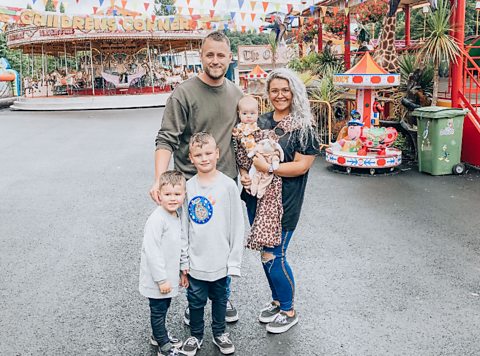
Expert advice from Child Bereavement UK
There is no rule book on how to grieve
EveryoneŌĆÖs experience of grief is unique to them. ItŌĆÖs a deeply personal experience. Some people are unable to focus on anything but their loss; others may focus on activities. Many people do both. For couples, these different responses may be misinterpreted by each partner and cause tension. However, there is no right or wrong way to grieve; understanding that people have different ways of dealing with it can be helpful in itself.
Getting support and finding comfort is also personal
Grief is not about forgetting the person who has died, but about finding ways to remember them in a way that feels right for you. Ways to remember could include doing something that reminds you of your baby or child or creating a memory box or jar.You may already have a support network around you from family and friends, but may feel you need additional, professional support. When, if, and how you access support is a personal choice and there are many organisations that can help.ItŌĆÖs important to find easy ways to look after yourself
Grief can be so overwhelming that it might not feel important to look after yourself physically. But emotional pain can show in lots of physical ways, such as sleep and appetite problems. Improving your wellbeing, even in small ways, can help to reduce feelings of exhaustion, isolation or helplessness. Having structure to your day can also help, giving you a sense of stability and purpose.

Speak simply and honestly with your children
Explaining the death of a baby to their siblings is hard, especially when youŌĆÖre grieving. However, itŌĆÖs a good idea to tell your child what has happened as soon as you can. What theyŌĆÖre not told, they tend to make up, which can cause further confusion and distress. If your child is asking questions, itŌĆÖs because they are ready to hear the answers. Use age-appropriate language, avoiding euphemisms like ŌĆśpassed awayŌĆÖ or ŌĆśwent to sleepŌĆÖ, which can be confusing. It may help to let your childŌĆÖs school or nursery know and if your child is struggling, you can seek guidance from a bereavement support organisation.
Talking to other people can help if you decide to try for another baby
At Child Bereavement UK, we support many parents who are pregnant again after the death of their baby and we know it can bring up a range of feelings from hope, to guilt and fear. It can be helpful for you to talk to someone outside your own family or social group to help you not only cope with your own feelings, but those of others around you too.
Further advice
If you or your loved ones have been affected by baby loss, you can call Child Bereavement UKŌĆÖs helpline on 0800 02 888 40 or live chat via
For more information about sepsis, visit
Visit the website for more information about
For support with a wide range of issues, visit │╔╚╦┬█╠│ Action Line

